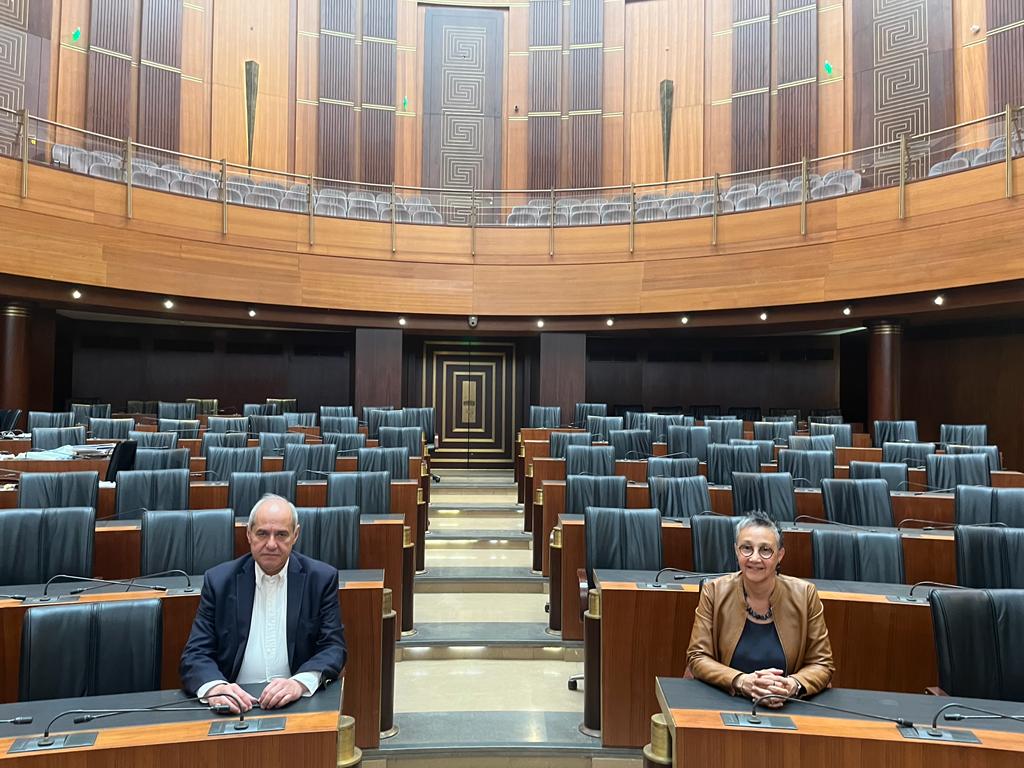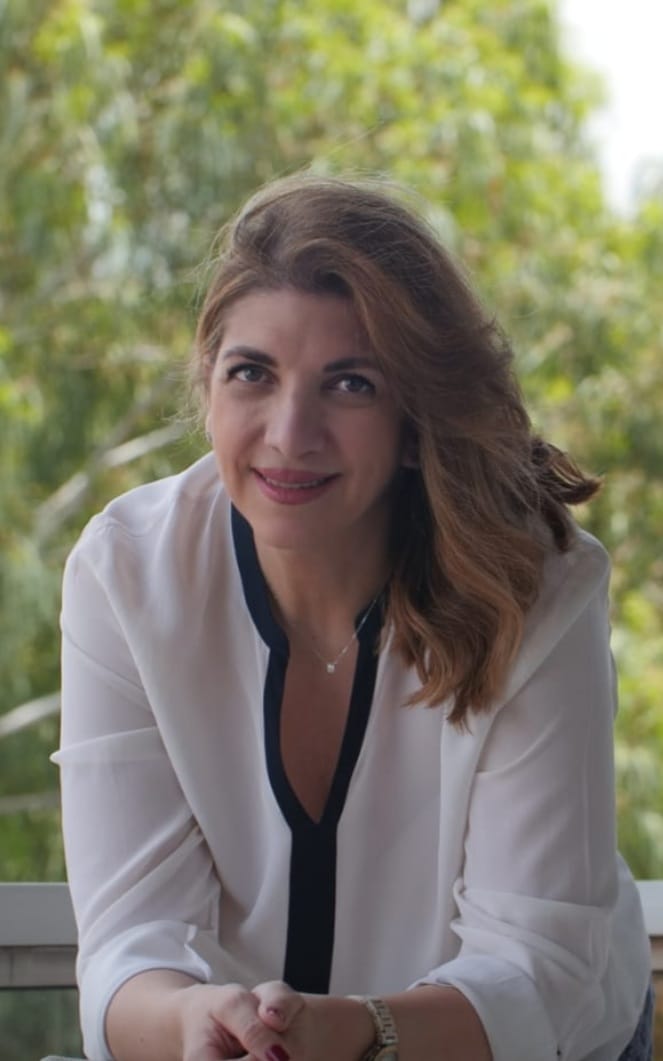The Switzerland of the Middle East is no more. The enormity of Beirut’s 2020 port blast and of the extortion of the Lebanese population of their deposits and life savings account for the default of the rule of law in this former enclave of liberty and democracy in the Middle East. This label was attributed to the country perhaps for its openness and attachment to freedom that was accompanied with a certain degree of laxity.
The latter has however transformed into anarchy and chaos after decades of mismanagement and embezzlement of public funds by a corrupt post-war ruling class, unwilling to give up its privileges despite numerous demonstrations and calls for destitution from an at first angry and now resigned public opinion. Lack of accountability and general impunity has led to the fall of the state, leaving room for dangerous abuses.
Insidiously, Lebanon is becoming a police state, where freedom of expression and basic human rights such as access to education and health are being denied. The rule of the jungle, now prevailing, could represent a serious threat to social cohesion and to the DNA of Lebanon However, a few MPs, civil society activists, associations, intellectuals, lawyers and journalists are working day and night to counter the trend, by planting the seeds for new governance and for the reconstruction of a state of law, the only guarantor of democracy and of a dignified living.
The suspension of judicial proceedings in the August 4 blast trials is a crying symbol of the current state of things
It has been almost three years since the families of those who died in the August 4th blast have been asking for justice, only for their cries to fall on deaf ears; in an attempt to camouflage the responsibilities and to have the investigation dropped. An even if there has been support for these families from some corners of parliament and civil society, the investigation has seemingly stalled.
The judge who had been initially appointed, Tarek Bitar, has been replaced by another who would be inclined to cover the parties involved. In Lebanon it would seem that the judiciary is not entirely independent; rather, like most of top-level public functions it reflects the country’s confessional system and therefore has the tendency to entertain allegiances that are not necessarily aimed at ensuring higher public good.
#UPDATE The judge leading the investigation into Beirut's deadly 2020 port blast refused on Wednesday to step down from the probe, rejecting charges brought against him by Lebanon's top prosecutor in the politically charged case ▶️ https://t.co/lsxdL0lXlM
📷 Judge Tarek Bitar pic.twitter.com/YIBH0BRUGk
— AFP News Agency (@AFP) January 25, 2023
Last October, seventeen suspects detained in the case of the port explosion were freed by the General Prosecutor before they could be placed on trial, provoking protests from the families of the victims and from civil society, which were quickly repressed by police. Even Members of Parliament who expressed their support to the families were assaulted by the bodyguards of the Minister of Justice.
“The Lebanese people are the witness of the assassination of justice through illegal and surreal means. We will not make any concessions on the blood of the innocent victims of August 4th” declared MP Waddah Sadek. Having lost trust in local justice, the families of the victims are asking the UN for a fact-finding mission, which could be easier to obtain than an investigation, even though this approach would also take lobbying and time. Volker Türk, the United Nations High Commissioner for Human Rights, called for a “serious investigation”.
Citizens’ daily lives are being hampered by a general unwillingness to enforce the rule of law
Not only is Lebanese justice ineffective because of its politicized and now paralyzed judiciary, it is also hindered within parliament as MPs cannot legislate as long as the government is a caretaker government, which is also not undertaking the mandatory reforms to address the financial and economic collapse. The latter are the threshold for an agreement with the IMF.
With no funding and with a power vacuum pending the election of a President of the Republic that should have taken place eight months ago, all public institutions are similarly stuck. Judges themselves went on strike for months last August because of their devaluated wages, hindering the regular functioning of several administrations.
Most of these are hostages of the “deep state” as opposition MP Najat Aoun Saliba states, interviewed by Reset DOC. One example is that of the department of motorvehicles that has been closed for months: allegations of corruption were levelled at a large number of employees, ironically by the authorities themselves. It is not an isolated case; most public bodies are hives of corruption, and increasingly so with the crisis, as the monthly wages of public servants have drastically decreased – 50 USD to 100 USD or little more depending on the rank – with the vertiginous devaluation of the Lebanese Pound.
Inheritance, property sales and purchase formalities, access to medicine and care are all suspended, leaving regular citizens distraught and in survival mode. The number of suicides has been increasing in a country that used to be defined by its “joie de vivre” despite its tumultuous history. Now, it is human dignity that is at stake.

Citizens are paying the price for the absence of a state of law
In this climate, two opposition MPs, Najat Aoun Saliba and Melhem Khalaf, have been sitting-in and sleeping in Parliament for over four months, demanding the enforcement of the Constitution i.e., the election of a President, to save the rudiments of the rule of law. “We have a law and we have to implement it. Once you have a quorum you don’t have to wait for the President of the Chamber to call for an election” the MPs explain. So far, they have not been heard by their peers, but their perseverance has drawn the attention of international groups and of figures and organizations in the diaspora whose mediation could have some influence.
The urgency of the election is in direct relation to the galloping poverty taking hold over the population – left to its fate – because of the financial crisis, primarily attributed to the Governor of the Central Bank in concert with banks and high-ranking government executives. Even with several arrest warrants against him, in France, Germany and many other countries for fraud, the Governor is still in place, protected by his accomplices in power. In the meantime, the Lebanese people are paying the price of this immobility.
In this deliquescent context and in the wake of October 2019 Revolution, media, academicians, and civil society have been increasingly vocal, revealing scandals and raising awareness on corruption, on infringements of the rule of law and on necessary and possible reforms. Silencing, arrests and intimidation tactics have immediately come as a response as was the case with the protestors during the Revolution and in its aftermath every time they claimed for their rights.
Violations of freedom of expression and individual freedoms are becoming common: recently a law was passed, much criticized, prohibiting lawyers from making any statement before the media unless authorized by the Chairman of the Bar Association, who happens to be tied to the regime. Intellectuals and opinion leaders, even universities, beacons of free thinking and freedom of expression, immediately reacted to this scandalous decision. “The Bar Association like all syndicates and orders are all penetrated by the deep state” observes MP Saliba “Lebanon is a fake democracy. All human rights are being violated.”
Another recent example is that of the mayor of Saida – a large city in the south of the country – who banned all gatherings in response to harassment by Muslim sheikhs of swimsuit-wearing female beach-goers on public beaches. The mayor then prohibited “organizing any activity or protest without prior municipal agreement.”
“Impunity is not a fatality in Lebanon”

“The people should demand accountability” says Saliba. “Opposition MPs are asking for details, introducing good practices in Parliament. We have introduced transparency and more need for data and the practice of questioning and monitoring. We are questioning Ministers a lot even if they have resigned. And we pursue it until we receive results. This is how we revealed the scandal of the airport’s extension and forced them to back down”.
Hence, “impunity is not a fatality in Lebanon” as Marie Claude Najm, Dean of the Faculty of Law at Saint Joseph University and former Minister of Justice, insists on reminding those who incessantly repeat that it is. “We need to pierce this wall, breakthrough per breakthrough, as they have the bulldozer not us. It is David against Goliath. This is why we need to fight battle per battle; case per case. But we need to raise awareness to people about their rights and about truth”.
The widespread discourse on the fatality of impunity in Lebanon does not serve making one responsible; hence empowered: “We need a larger vision of responsibilities; responsibilities are not only those of politicians but also, those of universities, professional orders, syndicates, civil society. One needs structures through which to express themselves” pursues Ms. Najm. And many such structures and collectives have seen the light since the October Revolution, even if the general public mood is rather timid and resigned.
Their shared misfortunes and the political deadlock have brought awareness to some combative and perseverant citizens who have come together to defend what is left of the state of law. Organizations such as The Policy Initiative, Kulluna Irada, The Legal Agenda, ALDIC, NGOs and universities – Saint Joseph University and the American University of Beirut – lawyers’ collectives, think tanks and so on are reflecting on how to lay the groundwork for new governance and for the promotion of the rule of law to ensure a real democratic framework for the generations to come.
The risk is that their efforts remain “ink on paper” as was the case of the families of the disappeared during Lebanon’s 1975-1990 civil war who have carried on their fight for truth and recognition for more than 40 years. Not much happened since the set-up of an independent national commission to investigate the fate of their loved ones. The challenge is that of implementation; the danger is that of forgetfulness; and “to implement anything you need the rule of law at some point. The Haiti/NGO model is not sustainable. It stops when funds stop or when the law cannot be applied” says MP Najat Saliba. “We cannot live in a place of no law.” There is no alternative to the state of law in democracy and in Lebanon.
Cover photo: an empty Lebanese Parliament in the capital Beirut on April 22, 2014. AFP PHOTO/STR.
Follow us on Facebook, Twitter and LinkedIn to see and interact with our latest contents.
If you like our analyses, events, publications and dossiers, sign up for our newsletter (twice a month) and consider supporting our work.


